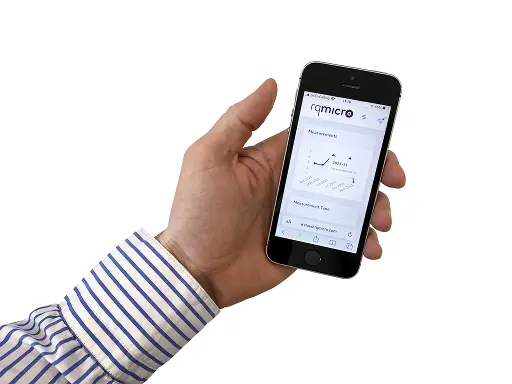Managing Water Has Become Strategic and Technology-Driven
Industries, such as food and beverage, semiconductor and car industries use large amounts of water for different purposes - cleaning, cooling, rinsing, and so on. Clean water is critical to industrial process quality and quality of end-products. According to some estimates, producing one liter of beverage requires about three liters of water on average, while producing one microchip on a 30cm wafer requires about 2,200 gallons of water [1]. However, water is a finite and vulnerable resource that faces increasing pressures from population growth, urbanization, climate change and pollution. Companies that depend on water for their core business therefore face water-related challenges for which they are seeking solutions. Innovative technologies to increase water reuse rate, to reduce water footprint, and to enhance the social and economic sustainability, include [2][3]:
- Digital technologies like AR/VR that increase the efficacy of field services and support remote exploration, investigation, and trouble shooting in real-time.
- Novel chemicals and energy-efficient technologies that help reduce the overall consumption of water, energy, and chemicals.
- Innovative analytical technologies and services that can efficiently track the quality of fresh water, process water and discharge water as well as clean water used during processes like bottle-cleaning.
- Water management techniques that prevent scaling and inhibit microbial growth in circulating water systems.
How Rapid Microbial Testing Helps
Microbial testing is the process of detecting and measuring the presence and number of microorganisms. Microorganisms can affect the quality, safety, and performance of water and the products that use water. Therefore, microbial testing is essential for monitoring and controlling the microbial risk of water in various industries.
Traditionally, microbial testing is done by using culture-based methods, such as plating, that involve growing microorganisms on a nutrient medium and counting the colonies that form after a certain incubation time. However, culture-based methods face severe (biological) limitations. Culture-based tests are generally time-consuming (take up to 14 days to acquire conclusive results), relatively labor-intensive, and prone to error due to lacking sensitivity (the VBNC issue) or specificity, and more. To overcome these limitations, new technologies for rapid and quantitative microbial testing have been developed, such as nucleic acid-based (PCR) methods, Raman spectroscopy-based methods, and cytometry-based methods. Selected advantages of these technologies include ease of use, efficiency (providing results in minutes to hours), automation, and digitization of results for traceability [4].
As a result, rapid microbial testing methods (RMTM) have been validated and accepted by numerous regulatory authorities worldwide. And industry users who have adopted such methods have justified the return on investment (ROI) provided by RMTMs in the long run [4].
Take Häagen Dazs, a premium ice cream brand, for example. By implementing a rapid microbiology analyzing system, Häagen Dazs reduced the testing time for Enterobacteriaceae, improved decision-taking in ice cream production, and decreased end product warehouse stocks by 50%, therefore benefiting from less inventory costs and greater company profitability [5]. Valperca SA, the largest aquaculture company in Switzerland, reported to save 50% of workload spent for microbiological monitoring when adopting rapid microbial testing method developed by rqmicro (see case study).
Collaborative Innovation with rqmicro
rqmicro, as a pioneer in rapid microbial testing, developed rqmicro.COUNT instrument, a very easy to use tool for customers from various industries to detect the total number of bacteria, E. coli, and Legionella in water systems. Together with the rqmicro Cloud solution, critical data is digitalized and protected. Relevant stakeholders can easily access test results of critical control points (CCP) and receive alerts on mobile devices.

rqmicro is actively looking for industrial partners to integrate our rapid microbial testing method into your water management system and hygiene design. We believe such collaborative innovation may bring to our customers numerous benefits, including:
- Providing real-time and reliable data on the microbial quality of water sources, process water, and wastewater, enabling faster and better decision making and corrective actions.
- Reducing the risk of microbial contamination and spoilage, ensuring the safety and shelf life of products, and avoiding product recalls and reputational damage.
- Optimizing the water treatment and water reuse, ensuring effectiveness of disinfection, filtration, and cleaning in place (CIP) process, and reducing the chemical and energy consumption.
- Demonstrating the compliance and performance of the water management practices, meeting the regulatory requirements and consumer expectations, and enhancing the brand image and trust.
Shall you be interested in finding out more about the synergy of working together with rqmicro, please feel free to contact us.
References:
[1] 8 Things You Should Know About Water & Semiconductors - China Water Risk
[2] Budweiser APAC
[3] Saving water with new technologies | Anuga FoodTec
[4] Report from the 2022 NIST Rapid Microbial Testing Methods (RMTM) Workshop
[5] Häagen Dazs Improve Enterobacteriaceae Testing | Pioneering Diagnostics (biomerieux.com)